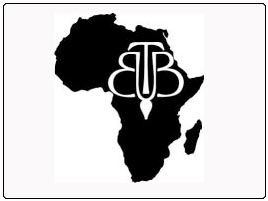The BBT Launches New Africa Branch
By Madhava Smullen | Сен 19, 2009

It’s the second-largest continent in the world. It has fifty-three countries, 2,000 languages, and a population of over 900 million. Yet with the South African BBT publishing books mainly in English, the Bhaktivedanta Book Trust has only touched the tip of Africa’s potential.
Until now.
The brand new African BBT was born at this February’s BBT meetings, when international trustees resolved to focus on translations into African languages, as well as to promote greater distribution of French and English books.
Their inspiration dates back to Brahmananda Dasa’s original attempt at preaching in Africa in 1971. Although he had had good success in reaching the Indian community, Srila Prabhupada told him to focus more on the indigenous people. “It is an African country,” he said. “We should be preaching to them.”
With Prabhupada’s words to guide him, Brahmananda began to make good progress. ISKCON’s first outdoor public chanting performance, at Nairobi’s Kamakunji Park, quickly drew a large African crowd. And when a young man stepped forward and offered to translate the philosophy talk into Swahili, the audience listened with rapt attention. It was an undeniable success.
Srila Prabhupada repeatedly made it clear that he wanted Krishna consciousness to be given to the indigenous people of Africa, and in their own language. In a 1971 letter, he wrote to his disciples on the continent: “Distribution of books and magazines is our most important activity—without books, our preaching has no solid basis.” He added, “Especially the Africans want our books.”
Though the South African BBT—established in 1977 by Tulasi Dasa, the then national secretary—has successfully distributed many English books, the year 2009 marks the first time that the BBT has mounted a concentrated effort to make Prabhupada’s books available in indigenous African languages.
The manager for the new BBT division, which will serve all of Africa, is Govardhana Dasa, a South African devotee who serves as ISKCON’s regional secretary for his country and who spent much of his youth distributing books. Competent and determined, he is far-reaching in his aspirations.
“Africa is a focus area for much of the world in terms of its low per capita income, political challenges and general levels of poverty,” he says. “While the African Union has been established to deal with these challenges, it’s only appropriate that we establish BBT Africa as our contribution to deliver on the spiritual aspirations of the people.”
And to reach out to the people of Africa in their own language is pivotal. Since most of Africa was colonized by European nations until the 1950s and beyond, locals place tremendous cultural and personal value in their mother tongues. For them, language is a sense of pride and a sovereign asset. “While most affluent Africans speak English, at home or at family gatherings they generally speak in their mother tongue,” Govardhana explains. “So we want to make Lord Chaitanya’s message available to Africans on the most personal level—in their own language.”
But with over 2,000 languages spoken, it’s no easy feat. “The Bible is in 300,” says Govardhana. “That should set the bar.”
Luckily, he doesn’t have to start from scratch. By rolling the already established South African BBT into the new African BBT, Govardhana begins the project with startup, personnel, institutional structure and resources. These include an administrative head office in Johannesburg, managed by Govardhana’s wife Mathura Mandala Dasi, and a warehouse in Durban, close to the main port and their biggest customer, the ISKCON Durban temple. Jayadvaita Swami serves as the BBT trustee for the division.
Meanwhile, translation work has already begun. “A facility has been set up in Port Elizabeth, South Africa and is being managed by Haridas Pandit Dasa, a Tanzanian disciple of Mahavishnu Swami,” Govardhana says. “BBT Africa is still at an infancy stage of development, but so far we have managed to establish a small network of nine translators.”
Work is at different levels of completion on a number of books in various languages including Zulu, Xhosa, Lugandan, and Swahili—the main language in East Africa, where ISKCON has the strongest presence. Other books, including Bhagavad-gita As It Is, are being translated into the Kenyan dialects Akamba and Luo, the Congo language Lingala, the Rwandan dialect Kinyaruanda, and Siswati, one of South Africa’s eleven official languages. Though no release dates have yet been announced, it is expected that at least five new editions will be printed within the next ten months; and BBT Africa plans to release at least five new titles each following year.
With so many new volumes on the way, book distribution must also increase. Though about one million books have been distributed in South Africa alone since 1975, efforts in recent years haven’t matched their formerly high levels. By convening a “Book Distribution Summit” in Durban in April 2010, the BBT hopes to develop tactical plans to increase it.
“Nigeria is potentially the biggest market for book distribution, as it has the largest population in Africa and eleven ISKCON temples,” Govardhana says. “ISKCON also has a strong presence in Kenya. And of course South Africa’s rapid economic growth makes it an ideal market for book distribution. There are also markets for the BBTA outside of Africa, such as Mauritius, with its large devotee population and established Krishna conscious base.”
Overall, the managers of the new BBT Africa expect their organization to increase African enthusiasm for book distribution, contribute to the development of book publishing, and enhance the attractiveness of Africa as a destination for ISKCON preachers.















